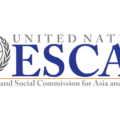Climate Finance Consultant on Pacific SIDS
JOB DETAIL
Result of Service
A consultant is required to draft a paper outlining options for the Pacific SIDS to enhance access to climate finance through a regional programmatic approach, as described below.
a. Annotated outline, incorporating all ESCAP’s comments
b. First draft of the paper, incorporating all ESCAP’s comments
c. Final draft of the paper, incorporating all ESCAP’s comments, and PowerPoint in ESCAP format summarizing messages of the paper
Work Location
Remotely
Expected duration
16 October 2023 – 31 January 2024
Duties and Responsibilities
Climate change represents the greatest threat to the well-being, livelihoods and security of the peoples of the Pacific. As such, climate resilience is a crucial component of sustainable development for Pacific SIDS. However, securing access to climate finance remains a significant challenge that requires coordination and technical and institutional capacity. Furthermore, high transaction costs and limited resources contribute to challenges in identifying suitable projects, building pipelines and developing appropriate mechanisms and processes to manage the risks and opportunities presented by climate finance in the region. Currently, most of the region’s climate action funding comes from multilateral climate funds, multilateral development banks and bilateral donors, which jointly provided US$500 million per year on average over 2017-2019. The sheer scale of the funds needed to address climate change is unprecedented. The IMF estimates that the average additional annual spending required for climate resilience in the Pacific SIDS is approximately 6½ and 9 per cent of GDP or nearly US$1 billion annually. Governments cannot do this alone; a range of traditional and innovative financing mechanisms and instruments will need to be leveraged to mobilise the level of finance required.
ESCAP and the Pacific Islands Forum Secretariat (PIFS) have agreed to prepare a paper analysing the challenges and opportunities to scaling up access to public and private finance for climate action. The report will assess the current climate finance landscape and identify opportunities to expand access to both public and private sources of climate finance through innovative financing mechanisms such as carbon markets and nature-based solutions (NBS). In particular, the paper will consider a regional programmatic approach for the Pacific SIDS to enhance access to climate finance. The rationale for this approach is that current modalities of access to finance are primarily national and project-based, which involve substantial transaction costs for national administrations that are often understaffed and with many competing responsibilities.
The consultant will draft a paper outlining options for the Pacific SIDS to enhance access to climate finance through a regional programmatic approach. The report will consider using this approach for accessing both public and private sources of finance, including innovative financing instruments such as NBS and carbon markets. The paper will analyse if a regional programmatic approach could facilitate scaling up access to finance by providing more flexibility in budget allocation, improving efficiency and enhancing technical assistance and capacity-building by delegating processes to a specialised regional entity that could access climate finance by providing access to funding for multiple projects and advising Pacific SIDS on the preparation of pipelines of bankable projects together with monitoring, reporting and verification (MRV) of project impacts.
The paper will elaborate on possible institutional arrangements for the implementation of the proposed regional programmatic approach, including the establishment of a new or repurposing of an existing regional entity, indicating its functions and responsibilities and indicating desirable technical capabilities, including project evaluation; MRV; and financial structuring and management.
The consultant will have at least 8 years of experience in climate finance or a related field. Experience in the Pacific SIDS would also be valued. During the preparation of the paper, the consultant will be in frequent contact with the project management and ESCAP’s climate finance advisor to discuss progress and clarify questions that may arise.
Qualifications/special skills
Advanced university degree in economics, finance, international business, or related fields.
At least 8 years of professional experience in Climate Finance, Economics, Business or Finance or a related field.
Experience working with Pacific SIDS would be preferred.
Experience in drafting policy papers, capacity development materials and analytical work on financing for development issues.
Languages
Fluency in English is required.
No Fee
THE UNITED NATIONS DOES NOT CHARGE A FEE AT ANY STAGE OF THE RECRUITMENT PROCESS (APPLICATION, INTERVIEW MEETING, PROCESSING, OR TRAINING). THE UNITED NATIONS DOES NOT CONCERN ITSELF WITH INFORMATION ON APPLICANTS’ BANK ACCOUNTS.



